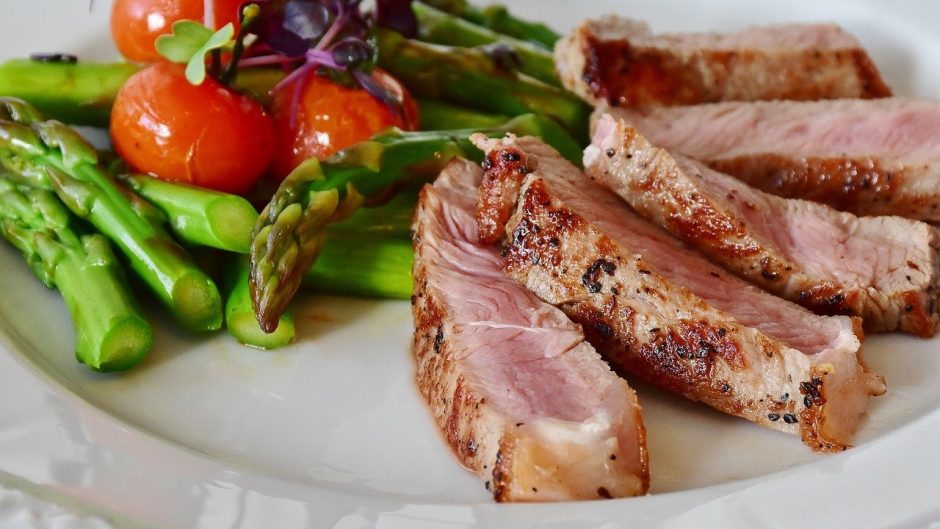- Write a shopping list
You know very well that if you go to the shop without a shopping list, you are going to come home with all the naughty stuff.
Draw up a meal plan using the stuff you already have in the fridge and the cupboards and make a shopping list of any missing groceries.
2. Try not to shop when you are hungry
Eat something before you go. People who shop when hungry are more likely to buy a Snickers bar or ten, soft drinks by the case, and cocktail sausages by the bag – not to mention those delicious custard-filled doughnuts, which have your butts name on them.
3. Waste not
We all chuck away food. Go check your bin.
Be strict about buying only what you’re going to eat. In other words, plan your meals.
Get storage boxes and bags for unused food and freeze them.
4. Eat leftovers for lunch
Instead of having to buy a meal deal from Tesco every day, cook more than you are going to use for dinner, and use the leftovers for a ready meal the next day.
5. Try the Sainsbury’s basics range (now called Mother Hubbard).
I can’t tell the difference half the time between the branded stuff and the basics range. The label is often the only difference.
6. Eat more vegetables
They are part of your five-a-day and they are often cheaper than having meat. Have you tried vegetarian meals? They are pretty good and there are plenty of recipes to choose from.
7. Research cheap recipes
8. Eat smaller portions
It’s psychology for the brain. If you eat from a smaller plate, your noggin will be fooled into thinking that it’s still eating a whole plate of food. It’s like giving a placebo to a druggie.
9. Cook from scratch
Save money by avoiding takeaways. Cooking your own meals is generally cheaper and healthier than buying a takeaway or ready meal. Check the label if you don’t believe me.
10. Go loose
Fruit and veg generally cost more pre-packed than loose. Check the pricing at the supermarket and compare loose to packed: the stores mix it up sometimes.
11. Check for marked-down items
Instead of throwing away goods that have reached their sell-buy dates, stores often mark them down on the last day, often as much as 90% off. Just try to use them before they go wet and soggy.
12. Cut down on luxuries
Try to cut down on soft drinks, crisps, biscuits, and those delicious custard-filled doughnuts. These items are high in sugar and fat, so your waistline and your bottom line will thank you.
Trade these items for healthier alternatives, like fruit and plain yoghurt. (Note that fruit juice bought in store are usually high in sugar, too. Rather get a zizzer and zizz yourself some healthy smoothies.
13. Get family approval.
Make sure you whip your children into shape before they are out of diapers, because after that it is so much more difficult to get them to buy into your new health / budget kick.
14. Shop online
Search comparison sites are available online. You can select a basket of goods and then select the cheapest supplier. Price differences can be significant.
It’s also easier to stick to a list, rather than shopping in an actual store where you smell the freshly baked bread rolls and you have to get 16 of them.
15. Look for wonky fruit and veg
Generally when you see fruit or veg on the store shelves, they are around the same size and shape, because it looks good to the eye. Wonky fruit is slightly out of shape and size and has a few bumps and discolouration – too ugly, too odd, too bendy or too big. They still have the same goodness as the “normal” produce but are cheaper.
16. Make your own sauces
You can find recipes for all kinds of sauces online – tomato sauce and mayo
17. Cook in bulk
Buying in bulk and then cooking in bulk can often save you money. Make a big batch of chicken biryani, eat some tonight and freeze the rest. It will save you ingredients, electricity, and time.
18. Buy frozen
Usually cheaper, frozen foods are pre-packaged, more convenient and have a longer shelf life than fresh foods. Just remember that frozen meats cannot be cooked from frozen and need to be defrosted. So, if you are planning chicken for dinner, take it out early to let it defrost.
19. Make soup
Make soup from leftover vegetables at the end of the week, adding some tasty spices or curry to give it more zing.
20. Grow your own food
Usually the groceries you find at the store are cheaper, but if you have your own allotment or garden, why not plant a couple of fruit trees, or sow some seeds? The results are healthier because they don’t have the insecticides store bought ones have. You will also smile more when you know you’ve grown them yourself.





